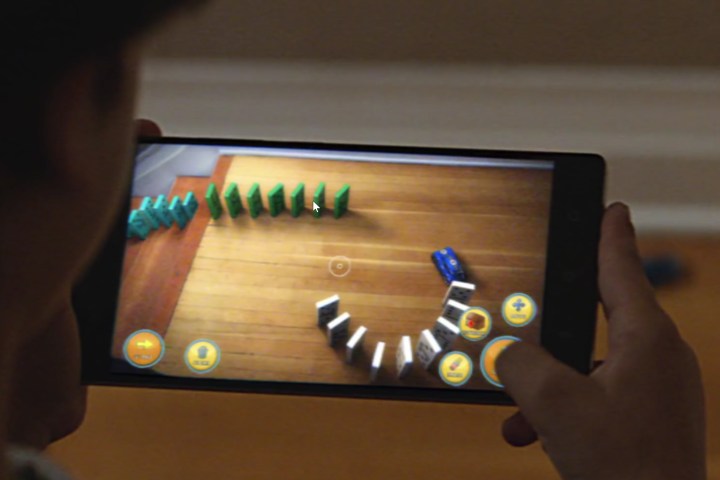
On May 1, Google, which is backing the video game development engine Unity, held its Vision Summit in Los Angeles, California. During the opening keynote, Google’s project manager for developer platforms, Nathan Martz, announced that the Project Tango AR platform will soon receive official, native support in Unity, according to a report from Road to VR.
This collaboration isn’t completely unexpected, as Unity already offers similar support for Google’s virtual reality platform, Daydream. The decision should be beneficial for all concerned, since it will open up new avenues for Unity developers, and potentially facilitate plenty of new projects that take advantage of AR functionality.
In January 2017, Asus unveiled the ZenFone AR, a powerful smartphone that’s outfitted with support for Project Tango. With more hardware that can take advantage of the platform hitting the scene, it makes complete sense for Google to pursue partnerships with the likes of Unity to ensure that new content is being developed at a steady rate.
Laying the groundwork for a new technology like AR is a double-edged sword; it’s important to have a healthy user base, because otherwise developers aren’t going to commit to developing for compatible hardware, but users aren’t going to jump on board without compelling content. This is a problem that the VR industry is currently grappling with, and it could prove to be similarly obstructive for AR.
However, this move should help cultivate the AR ecosystem in a way that benefits developers and users alike. Project Tango support will be introduced to Unity as of version 2017.2 of the software, which is scheduled to debut later this year.
Editors' Recommendations
- Google’s life-changing AR smart glasses demo gave me shivers
- Google parent firm pops Loon balloon internet project
- Lenovo’s ThinkReality AR glasses can project virtual desktops into your eyes
- Apple TV+ could soon offer bonus AR content to boost subscriptions
- Google Sodar lets you visualize social distancing guidelines in AR

